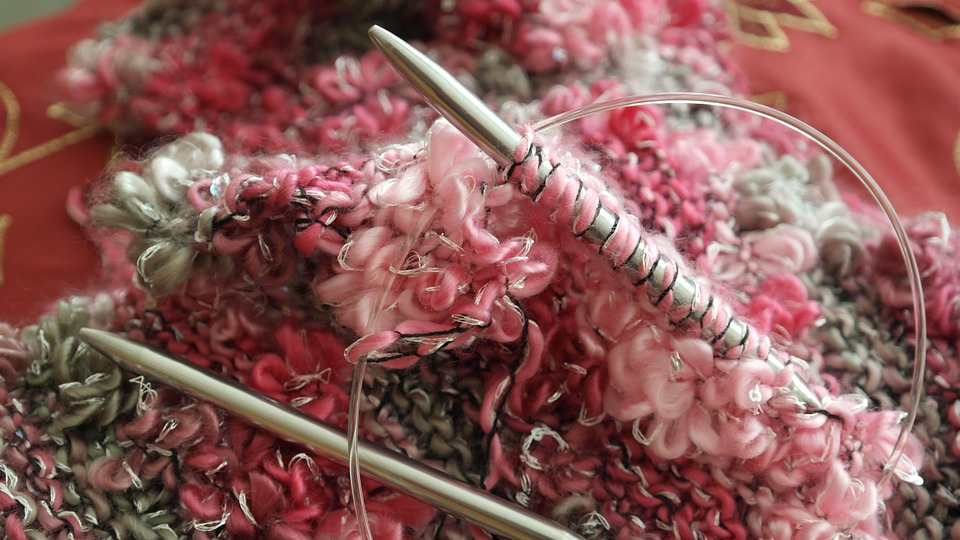This comprehensive guide explores the intriguing question of whether cats can enjoy the sweetness of fruit, offering detailed insights into feline nutrition and safe fruit choices. We'll debunk common myths, uncover the nutritional benefits of various fruits, and provide a detailed list of safe and unsafe options for your feline friend. Whether you're a seasoned cat owner or a curious newcomer, this article will equip you with the knowledge to make informed decisions about your cat's diet and ensure their well-being.
Part 1: Understanding the Feline Digestive System

1.1. Obligate Carnivores: A Biological Perspective
Cats are classified as obligate carnivores, meaning their bodies are designed to thrive on a diet primarily composed of animal-based protein. Their digestive system has evolved over millennia to efficiently process meat, breaking down proteins, fats, and other essential nutrients found in animal prey. This specialized digestive system is distinct from that of herbivores or omnivores.
1.2. The Importance of Animal-Based Protein
Animal protein is crucial for cats, providing essential amino acids like taurine, which is vital for heart health, vision, and reproductive function. It also contains arachidonic acid, necessary for healthy skin and coat. While some fruits may offer supplementary vitamins and minerals, they cannot replace the fundamental role of animal protein in a cat's diet.
Part 2: Debunking Common Myths About Fruit and Cats

2.1. "Cats Can't Digest Fruit": Separating Fact from Fiction
It is a common misconception that cats cannot digest fruit. While their digestive system is primarily designed for meat, they can process and absorb nutrients from certain fruits. However, fruit should never be the main source of nutrients for a cat.
2.2. "Fruit is Too Sweet for Cats": Sugar Content and Feline Health
It's true that cats have a different taste perception than humans, and some may not be drawn to the sweetness of fruit. However, the sugar content in most fruits is generally not harmful to cats when consumed in moderation. Excessive sugar intake can contribute to weight gain and dental problems, making moderation essential.
Part 3: The Nutritional Benefits of Fruits for Cats
3.1. A Source of Vitamins and Minerals
Certain fruits can provide a boost of vitamins and minerals that can complement a cat's diet. For example, blueberries are rich in antioxidants, which can help protect against cell damage and support overall health. Oranges are a good source of Vitamin C, although cats can produce their own, so excessive consumption is not necessary.
3.2. Hydration and Digestive Support
Fruits with high water content, like watermelon, can contribute to hydration, especially during hot weather. Bananas contain fiber that can aid in digestion and prevent constipation, but excessive fiber intake can also cause digestive upset.
3.3. Enrichment and Mental Stimulation
Offering small pieces of fruit as treats can provide mental stimulation and enrich your cat's environment. The anticipation and enjoyment of a tasty treat can contribute to their overall well-being. Remember, treats should be given in moderation and should not replace their regular diet.
Part 4: Safe Fruits for Cats: A Comprehensive List
4.1. Berries: A Nutritious and Delicious Treat
- Blueberries: Rich in antioxidants and low in sugar, blueberries can be a healthy treat for cats.
- Raspberries: Another excellent source of antioxidants and fiber, raspberries are a delicious and safe option for cats.
- Strawberries: These juicy berries are also a good source of vitamin C and fiber, but be sure to remove the stems and leaves.
4.2. Melons: A Refreshing and Hydrating Option
- Watermelon: This summer favorite is high in water content and provides a refreshing treat. Be sure to remove seeds and rind.
- Cantaloupe: This melon is also a good source of vitamins and minerals, but avoid feeding the seeds and rind to your cat.
4.3. Tropical Fruits: A Taste of the Exotic
- Mango: The flesh of a ripe mango is safe for cats, but remove the pit and skin. Mangoes are rich in vitamins A and C.
- Papaya: Papaya is a good source of fiber and digestive enzymes, but avoid the seeds.
- Banana: Bananas are a good source of potassium and fiber, but they are high in sugar, so feed in moderation.
4.4. Citrus Fruits: A Tangy Treat in Moderation
- Oranges: Oranges can be a good source of vitamin C, but only offer small amounts as they are acidic and can cause digestive upset.
- Grapefruit: Grapefruit is also acidic and should be given sparingly, if at all.
4.5. Other Safe Fruits: Apples, Pears, and More
- Apples: Apples can be a healthy treat for cats, but remove the core and seeds, which contain cyanide.
- Pears: Pears are also a good source of fiber and vitamins, but remove the core and seeds.
Part 5: Unsafe Fruits for Cats: A List to Avoid
5.1. Grapes and Raisins: A Serious Threat
Grapes and raisins are highly toxic to cats, and even small amounts can cause kidney failure. Never feed these fruits to your cat, and keep them out of reach.
5.2. Avocado: A Harmful Toxin
Avocados contain persin, a toxin that can cause vomiting, diarrhoea, and respiratory problems in cats. Avoid offering avocados to your feline friend.
5.3. Cherries: Cyanide Poisoning
Cherries contain cyanide, a substance that is poisonous to cats. The pits, leaves, and stems are particularly dangerous.
5.4. Peaches and Nectarines: Toxic Pits and Leaves
The pits and leaves of peaches and nectarines contain cyanide, and the fruit itself can cause digestive upset in cats. Avoid feeding these fruits to your cat.
5.5. Lemons and Limes: Acidity and Digestive Distress
The high acidity of lemons and limes can irritate the stomach and cause vomiting in cats. It is best to avoid offering these fruits to your cat.
5.6. The Importance of Research
Before offering any new fruit to your cat, research its safety and potential toxicity. Always err on the side of caution and consult your veterinarian if you have any doubts.
Part 6: Considerations for Fruit Consumption
6.1. Fruit Preparation: A Matter of Safety
When offering fruits to your cat, it's essential to wash and prepare them properly. Remove any seeds, pits, or leaves, as these can be toxic or pose a choking hazard. Slice the fruit into small, manageable pieces to prevent choking.
6.2. Individual Reactions: Observing Your Cat
Every cat is different, and their reactions to certain fruits may vary. Some cats may be more sensitive to certain ingredients, leading to digestive upset or allergies. Always monitor your cat for any signs of adverse reactions after introducing a new fruit. Symptoms may include vomiting, diarrhoea, itching, or sneezing.
Part 7: FAQs: A Guide to Common Queries
7.1. Can Cats Eat Fruit Skin?
While some fruit skins are edible, it's best to avoid feeding them to your cat. The skin can be difficult to digest and may contain pesticides or chemicals.
7.2. Can Cats Eat Fruit Seeds?
Many fruit seeds contain toxins that are harmful to cats. Always remove seeds before offering fruit to your feline companion. For example, apple seeds contain cyanide, and peach pits contain amygdalin, which breaks down into cyanide.
7.3. Can Cats Eat Dried Fruit?
Dried fruit is typically higher in sugar and calories than fresh fruit. Avoid feeding dried fruit to your cat, as it can contribute to weight gain and dental problems.
7.4. How Much Fruit Can Cats Eat?
The amount of fruit your cat can eat depends on their individual needs and size. As a general guideline, a small piece of fruit a few times a week is typically safe.
7.5. Can I Give My Cat Fruit Every Day?
While occasional fruit treats are fine, it's best to limit their consumption to a few times a week. A diet primarily composed of meat is essential for your cat's health.
7.6. Can Fruit Cause Allergies in Cats?
Some cats may experience allergies to certain fruits. If you notice any signs of an allergic reaction, such as itching, sneezing, or vomiting, stop feeding the fruit and consult a veterinarian.
7.7. What If My Cat Eats a Toxic Fruit?
If you suspect your cat has eaten a toxic fruit, contact your veterinarian immediately. They can provide guidance and potentially administer treatment. It is essential to act quickly as some toxic fruits can cause rapid and severe health problems.
Conclusion: A Balanced Approach to Feline Nutrition
In conclusion, offering a small amount of safe fruits to your cat can provide a delightful treat and add variety to their diet. However, it's crucial to remember that cats are obligate carnivores, and their primary dietary needs are met through meat-based foods. Always consult your veterinarian for specific guidance on your cat's dietary requirements and any potential concerns. By understanding the nutritional needs of our feline companions and making informed choices about their diet, we can contribute to their overall health and well-being.
Everyone is watching
-

Are Cat Ribs Flexible? Understanding Their Anatomy
CATS & KITTENSThis article delves into the fascinating world of feline anatomy, exploring the flexibility of cat ribs and ho...
-

Can Cats Eat Bananas? (Everything You Need to Know)
CATS & KITTENSThis article dives into the intriguing question of whether cats can safely enjoy the sweet, yellow fruit, bana...
-

Cat Lifespan: How Long Do Cats Live?
CATS & KITTENSThis comprehensive guide explores the factors influencing the lifespan of our feline companions, providing ins...
-

Can Cats Get COVID-19? What You Need to Know
CATS & KITTENSThis article will delve into the fascinating world of feline COVID-19 susceptibility. We'll explore whether ca...
-

Can Cats Eat Eggs? A Complete Guide to Egg Safety for Your Feline Friend
CATS & KITTENSWhen it comes to treating our furry companions, we all want to ensure we're doing what's best for them. Eggs...
